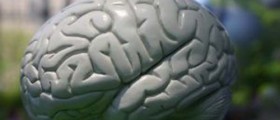
Dementia is a serious loss of cognitive ability and it typically affects previously unimpaired people. In case of dementia the loss of cognitive ability is more intensive than it is considered normal for the regular process of aging. The condition predominantly affects the geriatric population but it may also occur in adults.
Dementia of the elderly is known under the name of senile dementia or senility. It is considered a non-specific illness syndrome and the impairment is associated with memory, attention, language and problem solving. The problems must persist for at least 6 months for the condition to be confirmed.
Cognitive Changes as First Signs of Dementia
Cognitive changes are definitely the introductory signs of dementia. If they are noticed they must be reported to the doctor.
One of cognitive changes is memory failure. People suffering from dementia have lapses of memory. They tend to forget appointments or other people's names. In these patients there is evident memory loss regarding recently learned information.
Patients suffering from dementia also have problems when it comes to performing basic tasks such as maintaining basic hygiene and preparing meals. A person may even have difficulties making a phone call.
In some cases senile patients forget names or even use terms mistakenly. The errors occur in both, spoken and written language.
And finally, in early stages of dementia a person may lose orientation in familiar places. Such problems make patients suffering from dementia prone to get lost even in their neighborhood.
Behavioral Changes and Dementia
There are also typical behavioral changes associated with the onset and further development of dementia. Many people may not consider these changes relevant and think they occur due to normal process of aging.
People suffering from dementia are prone to frequent mood changes. There is a variety of emotions that can alternate rapidly and last only a short period of time. With the progression of dementia mood changes tend to intensify and occur more frequently.
Personal changes are also typical for people suffering from dementia. The way a person reacts may be different from the one he/ she used to. The inability of a person to memorize recently obtained information may cause frustration and agitation. All personal changes in people who used to act normally must be noted and reported to the doctor. One more personal change characteristic for dementia is depression.
And finally, one of the most serious early signs of dementia is decrease in energy level. For example, a person may sleep longer than usual, sit and watch television for hours (even though he/ she did not use to do perform such activities) and there is also a chance for reduction in physical activity. Loss of interest for the activities one used to perform with joy may be symptomatic for dementia.

















Your thoughts on this
Loading...